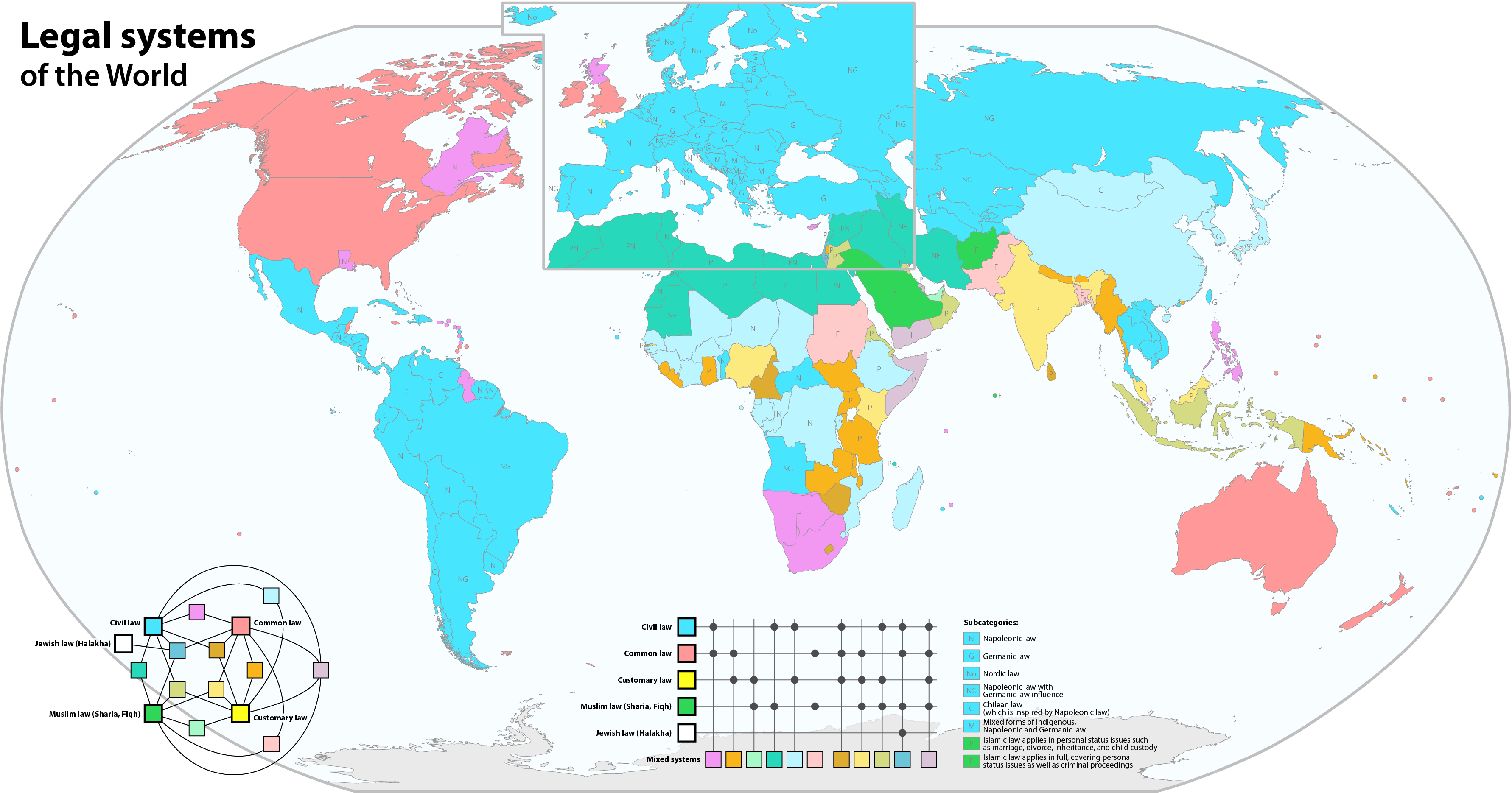
Comparative law
Comparative law is the study of differences and similarities between the law (legal systems) of different countries. More specifically, it involves the study of the different legal "systems" (or "families") in existence in the world, including the common law, the civil law, socialist law, Canon law, Jewish Law, Islamic law, Hindu law, and Chinese law. It includes the description and analysis of foreign legal systems, even where no explicit comparison is undertaken. The importance of comparative law has increased enormously in the present age of internationalism, economic globalization, and democratization.
Comparative law is an academic discipline that involves the study of legal systems, including their constitutive elements and how they differ,[6] and how their elements combine into a system.
Several disciplines have developed as separate branches of comparative law, including comparative constitutional law, comparative administrative law, comparative civil law (in the sense of the law of torts, contracts, property and obligations), comparative commercial law (in the sense of business organisations and trade), and comparative criminal law. Studies of these specific areas may be viewed as micro- or macro-comparative legal analysis, i.e. detailed comparisons of two countries, or broad-ranging studies of several countries. Comparative civil law studies, for instance, show how the law of private relations is organised, interpreted and used in different systems or countries. The purposes of comparative law are:
Comparative law is different from general jurisprudence (i.e. legal theory) and from public and private international law. However, it helps inform all of these areas of normativity.
For example, comparative law can help international legal institutions, such as those of the United Nations System, in analyzing the laws of different countries regarding their treaty obligations. Comparative law would be applicable to private international law when developing an approach to interpretation in a conflicts analysis. Comparative law may contribute to legal theory by creating categories and concepts of general application. Comparative law may also provide insights into the question of legal transplants, i.e. the transplanting of law and legal institutions from one system to another. The notion of legal transplants was coined by Alan Watson, one of the world's renowned legal scholars specializing in comparative law. Gunther Teubner expanded the notion of legal transplantation to include legal irritation: Rather than smoothly integrating into domestic legal systems, a foreign rule disrupts established norms and societal arrangements. This disruption sparks an evolution where the external rule's meaning is redefined and where significant transformations within the internal context are triggered.[7] Lasse Schuldt added that irritation is not spontaneous, but requires institutional drivers.[8]
Also, the usefulness of comparative law for sociology of law and law and economics (and vice versa) is very large. The comparative study of the various legal systems may show how different legal regulations for the same problem function in practice. Conversely, sociology of law and law & economics may help comparative law answer questions, such as:
Classifications of legal systems[edit]
David[edit]
René David[9] proposed the classification of legal systems, according to the different ideology inspiring each one, into five groups or families:[10]